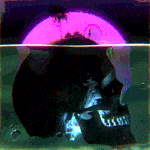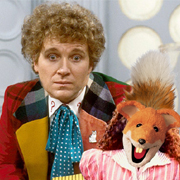|
big scary monsters posted:Which is kinda ironic because in yet a third meaning of the word, table salt is inorganic while the much hated and widely considered unhealthy monosodium glutamate is in fact (an) organic salt. msg is great to add to stews/soups/sauces
|
|
|
|

|
| # ? Jun 6, 2024 21:23 |
|
Tesseraction posted:I thought that whole point of a salt is that it's half organic, half-inorganic. Or do you mean naturally-occuring? Organic in that sense is just (almost) any compound containing carbon.
|
|
|
|
I buy organic Heinz ketchup and organic Weetabix.
|
|
|
|
Jose posted:msg is great to add to stews/soups/sauces I don't want lots more MSG 5 chat that was really loving boring
|
|
|
Tesseraction posted:I thought that whole point of a salt is that it's half organic, half-inorganic. Or do you mean naturally-occuring? A salt is any compound composed of positive and negative ions you get if you react an acid and a alkali together. Eg: Hydrocholoric acid + Sodium Hydroixde = Sodium chloride (table salt) + water. Neither of its components has to be organic (you do get organic salts though, like sodium ethanoate)
|
|
|
|
|
Yes, but sodium chloride is half organic (Chlorine) and half inorganic (Sodium). I suppose what I meant was that the cations are provided by metals and the anions by non-metals, as opposed to organic/inorganic which refers to the chemistry of those relative metal classifications.
|
|
|
|
If you get elected police commissioner and don't outsource law enforcement to a sociopath local billionaire vigilante you're doing it wrong.
|
|
|
|
Chlorine isn't organic, organic chemistry is generally hydrocarbons.
|
|
|
OwlFancier posted:Chlorine isn't organic, organic chemistry is generally hydrocarbons. This: an organic compound is generally just one with carbon in it, somewhere.
|
|
|
|
|
lol apparently "organic" salt just doesn't have iodine or anticaking agents good luck with ur giant clumps of salt and thyroid cancer in the nuclear wastleand, hippies Tesseraction posted:Yes, but sodium chloride is half organic (Chlorine) and half inorganic (Sodium). I suppose what I meant was that the cations are provided by metals and the anions by non-metals, as opposed to organic/inorganic which refers to the chemistry of those relative metal classifications. XMNN fucked around with this message at 23:45 on Feb 4, 2016 |
|
|
|
OwlFancier posted:Chlorine isn't organic, organic chemistry is generally hydrocarbons. The halogens are definitely part of organic chemistry. Fluorine, Chlorine, Bromine and Iodine pop up in plenty of organic chemistry. I'm rusty as gently caress on it but I did do Chemistry to A-level.
|
|
|
|
nothing to seehere posted:This: an organic compound is generally just one with carbon in it, somewhere. Well yes, but unless the human body is solely diamond and graphite I'm guessing we have other things in there.
|
|
|
|
OwlFancier posted:Chlorine isn't organic, organic chemistry is generally hydrocarbons. But yeah the distinction is mainly that org. chem. is concerned with carbon atoms and the myriad different functional groups that can attach to them, and attracts a lot of guys with beards. e: Tesseraction posted:The halogens are definitely part of organic chemistry. Fluorine, Chlorine, Bromine and Iodine pop up in plenty of organic chemistry.
|
|
|
|
As reagents or as components of complex hydrocarbons yes, but not as a necessary part of the subject. https://en.wikipedia.org/wiki/Organic_chemistry Guavanaut posted:It's kind of a silly distinction being originally based on the idea that organic chemicals could only be created by living things and inorganic chemicals could be made by reactions in a lab. Then in the early 19th century some German guy made a piss in his lab and then Germany spent the next 100 years dominating org. chem. It is true that Organic Chemistry is rather a nebulous distinction because there's nothing overly special about it, hydrocarbon chemistry might be a better term because that tends to produce painfully complicated molecules.
|
|
|
|
Well it was more to do with covalent bonds vs. ionic bonds, but the distinction does melt down with more complicated compounds, I agree.
|
|
|
|
Halogens do pop up all over the place in organic chemistry, but then so do metals.
|
|
|
|
Right, but I suppose my question was how monosodium glutamate is organic given it's a salt, which is ionically bonded.
|
|
|
|
D block supremacy colourful ions err'day.
|
|
|
|
Tesseraction posted:Right, but I suppose my question was how monosodium glutamate is organic given it's a salt, which is ionically bonded. e: the thing below is a representation of its structure. Each vertex that isn't tagged with a letter represents one carbon atom. See how it has a long chain of such vertices? That, loosely, is what makes it organic. 
LemonDrizzle fucked around with this message at 23:51 on Feb 4, 2016 |
|
|
|
Tesseraction posted:Right, but I suppose my question was how monosodium glutamate is organic given it's a salt, which is ionically bonded. Cos the glutamate bit is an amino acid which is a hydrocarbon. https://en.wikipedia.org/wiki/Monosodium_glutamate
|
|
|
|
XMNN posted:lol apparently "organic" salt just doesn't have iodine or anticaking agents Put dried peas in it, that'll stop it clumping (in theory) and also make it, like, double organic (probably)
|
|
|
|
Right, but it ionically bonds, which has always been the defining thing of inorganic chemistry, I mean like even going from the wikipedia page on 'inorganic chemistry' brings up salts almost immediately https://en.wikipedia.org/wiki/Inorganic_chemistry#Key_concepts
|
|
|
|
I saw that dumb pink himalaya salt in the shop. Like, I can purify salt, I am actually qualified to do that, it doesn't matter what salt you use, if you don't break out the fancy glassware your salt isn't pure. Especially not if it's loving pink.
|
|
|
|
Many inorganic species are salts, but plenty are not - for example, chlorine gas is certainly inorganic but not a salt. You can even have inorganic compounds that have quite a lot of carbon in them, like tetrakis(triphenylphosphine)palladium(0). AMA palladium catalysis. Or, you know, don't
|
|
|
|
Tesseraction posted:Right, but it ionically bonds, which has always been the defining thing of inorganic chemistry, I mean like even going from the wikipedia page on 'inorganic chemistry' brings up salts almost immediately https://en.wikipedia.org/wiki/Inorganic_chemistry#Key_concepts There are very few things with clear cut lines, and there are some bonds that are elongated to the point of almost being ionic but are kinda covalent too, but they have to be labeled otherwise we get into metalinguistics or random grunting sounds. Or both. e: Palladium is cool.
|
|
|
|
tbf its a p good question, it is ionically bonded and conceptually sodium chloride is fairly similar to sodium acetate except one has a much bigger and more complex anion (and different crystal structures etc obv the answer is that chemistry is mostly held together by spit and convention and that goes doubly for the distinction between physical, organic and inorganic chemistry
|
|
|
|
IUPAC holds a royal rumble every decade and the winner gets to decide which branch gets supremacy. Organic chemistry held the title belt during the last championship by elbow dropping inorganic chemistry through a titration stand.
|
|
|
|
Tesseraction posted:Right, but it ionically bonds, which has always been the defining thing of inorganic chemistry, I mean like even going from the wikipedia page on 'inorganic chemistry' brings up salts almost immediately https://en.wikipedia.org/wiki/Inorganic_chemistry#Key_concepts "Organic" vs "Inorganic" isn't "Covalent" vs "Ionic", which you learn after A-level is a massive oversimplification in any case.
|
|
|
|
Fair enough, I guess the overwhelming majority of the compound is organic. Ahh, this is why I wish my teacher hadn't died mid-term. RIP C00l PhD Teach
|
|
|
|
MrL_JaKiri posted:"Organic" vs "Inorganic" isn't "Covalent" vs "Ionic", which you learn after A-level is a massive oversimplification in any case. I know, I addressed that in an earlier post, but I always tended to work with 'mostly ionic for inorg' vs. 'mostly covalent for org' with special cases from time to time.
|
|
|
|
All organic compounds contain carbon, but after that all bets are off. It's an entirely arbitrary distinction, and only really survives because the chemistry of hydrocarbons, amino acids and the like is so important a field it gets given a name to distinguish it.
|
|
|
|
Personally I like biology because you can settle arguments like this by flicking bits of kidney at people until they stop arguing.
|
|
|
|
OwlFancier posted:IUPAC holds a royal rumble every decade and the winner gets to decide which branch gets supremacy.
|
|
|
|
Guavanaut posted:And the shouting noises are recorded and used to revise IUPAC nomenclature. I think IUPAC and Germany should team up and put the esszets they took out of German into IUPAC nomenclature.
|
|
|
|
OwlFancier posted:Personally I like biology because you can settle arguments like this by flicking bits of kidney at people until they stop arguing.
|
|
|
|
If you really want to get into it we can start talking about orbital hybridisation, perturbation theory and band structure  OwlFancier posted:Personally I like biology because you can settle arguments like this by flicking bits of kidney at people until they stop arguing. You can do that in chemistry too if you're hardcore enough
|
|
|
|
Pork Pie Hat posted:If you get elected police commissioner and don't outsource law enforcement to a sociopath local billionaire vigilante you're doing it wrong. Batman?
|
|
|
|
XMNN posted:youre not allowed to do this in chemistry labs because youll set people on fire Still possibly less unpleasant than being doused in yeast water. But then the chemistry student will smash a bottle of glacial ethanoic acid over your head and you will regret it.
|
|
|
|
MrL_JaKiri posted:You can do that in chemistry too if you're hardcore enough just don't use benzine that's how my teacher died
|
|
|
|

|
| # ? Jun 6, 2024 21:23 |
|
XMNN posted:youre not allowed to do this in chemistry labs because youll set people on fire my favourite thing in lessons was when someone hosed up their reflux reaction and created a towering inferno
|
|
|


















